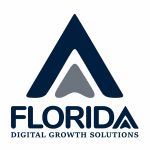If you’re curious about tracking Instagram ROI for local businesses, our in-depth guide will walk you through the entire process. Instagram has become a potent tool for local businesses to promote, engage and sell their products or services. But how do we evaluate the effectiveness of this platform? It all lies in understanding and tracking the Return on Investment (ROI).
The first question is, what is ROI? ROI is a method used by businesses to evaluate the efficacy of an investment. In this context, ROI is determined by analyzing the time, energy, and financial resources you dedicate to Instagram marketing against the results you achieve.
ROI is crucial as it gives local businesses a clear picture of which marketing strategies are profitable and which are not. This analysis aids businesses to allocate resources efficiently, boost sales, and ultimately increase bottom-line figures.
Key Performance Indicators (KPIs) are measurable metrics that help businesses track their performance over time. For Instagram, these metrics may include likes, shares, comments, followers, engagement rate, click-through rates, and conversions, among others.
Instagram offers its built-in analytics tool, Instagram Insights, to help businesses track their KPIs. This section briefly explains what each Instagram Insight means for your Florida-based local business.
1. Impressions: The total number of times all of your posts have been seen.
2. Reach: The number of unique accounts that have viewed any of your posts.
3. Website Clicks: The number of times any links you’ve included in your business profile have been clicked.
4. Profile Visits: The number of times your profile was visited.
5. Mentions: The number of times your account has been mentioned by other users in their posts or comments.
Drilling into these insights helps understand your audience behavior, preferences, peak engagement times, and much more.
To start measuring your ROI, it’s crucial to establish the metrics you want to focus on. These may vary depending on your goals but will traditionally include:
1. Engagement Rate: This tells you how engaged your audience is with your content.
2. Followers Growth: Keep an eye on how your followers are growing over time.
3. Conversion Rate: This is the percentage of users who take desired action after viewing your post or ad.
4. Leads Generated: How many potential customers you’ve acquired through Instagram.
5. Sales: The bottom line. How many sales were generated as a direct result of Instagram marketing.
The basic formula for calculating ROI in percentage is:
ROI = (Net Profit / Cost of Investment) x 100%
However, calculating Instagram ROI isn’t as straightforward. For a more accurate figure, you need to incorporate the costs incurred while tracking your business’s operations on Instagram. These may include time spent creating posts, cost of designing graphics, money spent on ads, hiring costs if you have someone dedicated to social media, and any other resources committed to the platform.
Learn More: Social Media Management That Works: Florida Business Guide
To ensure you’re correctly tracking your Instagram ROI, it’s crucial to:
1. Set Well-Defined Goals: Be it brand awareness, lead generation, or driving sales, ensure your goals are SMART (Specific, Measurable, Achievable, Relevant, and Timely).
2. Make Use of UTM Parameters: UTM parameters are tags added to a URL. When clicked, the tags are sent back to Google Analytics for tracking, thereby providing solid measures for your ROI.
3. Use an Instagram Business Account: A business account gives you access to Instagram Insights, which provide crucial data on your page’s performance.
4. Make Use of Instagram’s Promoted Posts: Instagram’s promoted posts are a useful way to reach a larger audience and can be measured for effectiveness.
Tracking Instagram ROI for local businesses may seem complex initially, but it becomes clearer once you understand your KPIs and utilize Instagram Insights correctly. Implementing these measures will not only give you a clearer picture of your Instagram performance but also help you create better strategies for growth.

Key West | Daytona Beach | Sarasota | Tampa | Cape Coral | Fort Myers | Fort Lauderdale | West Palm Beach | Naples | Orlando | Miami | Hialeah